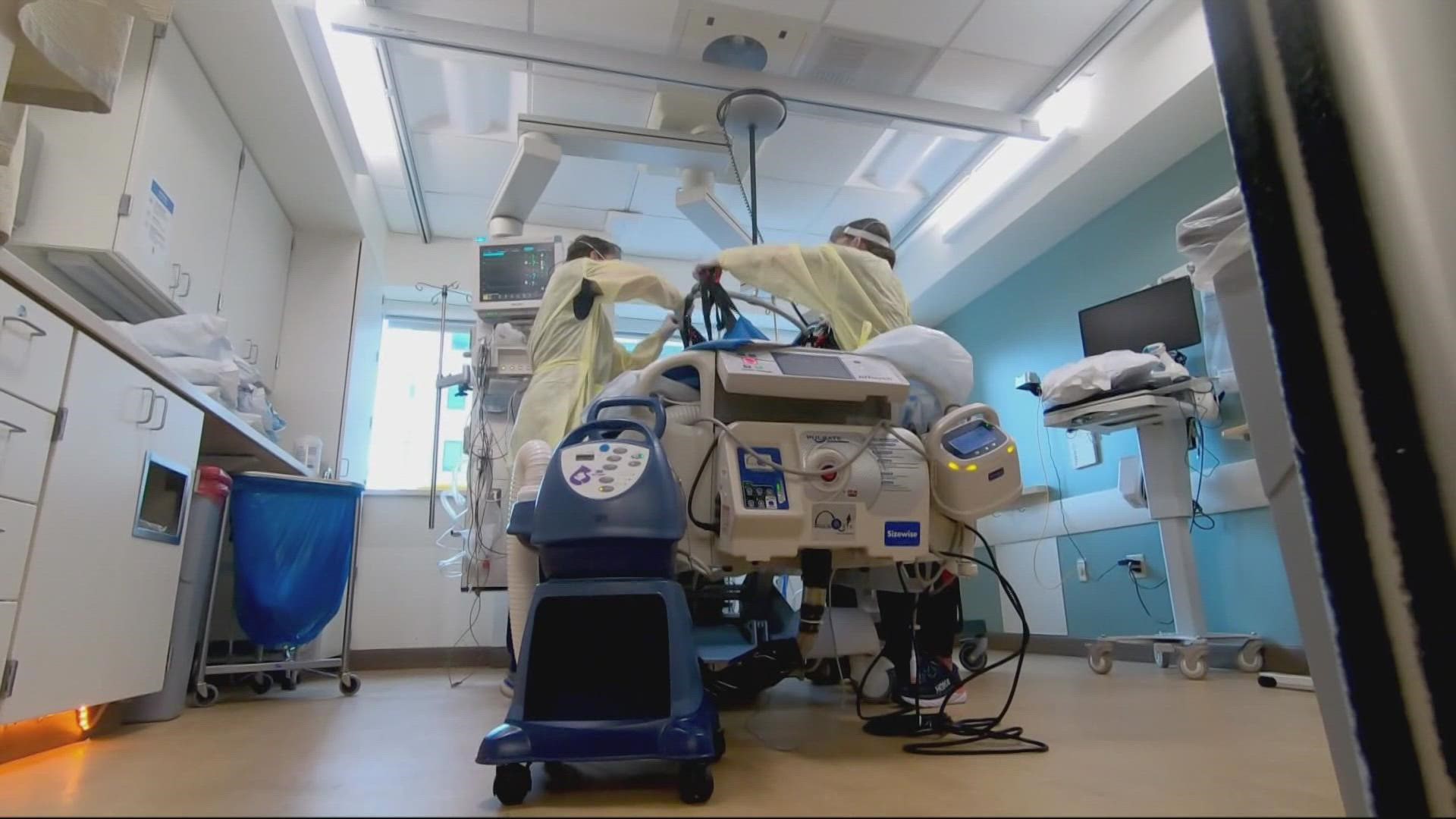PORTLAND, Oregon — Multnomah County public health officials held a press conference on Tuesday morning to discuss local COVID-19 trends and the county's response.
"I don't need to tell you, COVID case numbers are eye-popping," said Dr. Jennifer Vines, Multnomah County health officer.
Multnomah County is averaging about 1,200 cases per day, she said, a figure which doesn't include home testing. County health officials believe the omicron variant will infect half the county's population between mid-December and February, she added.
The news conference comes as health experts in Multnomah County have been looking forward to moving past the pandemic phase of COVID-19, even as the omicron variant has proven that the virus continues to be unpredictable.
It's been over two years since the first confirmed case of COVID-19 in the United States was detected the Pacific Northwest. And last week, state health officials said the omicron variant still hasn't hit its peak in Oregon.
However, Vines and public health director Jessica Guernsey said last week that they're currently preparing for what they anticipate will be a slow, steady climb out of the pandemic.
“We are still optimistic about the one-way street, with the major caveat — and let me just get this out front — that the virus calls the shots,” said Vines.
Health officials expect we will eventually get to a place where COVID-19 becomes endemic, meaning it doesn't disappear but becomes more manageable for our health care system.
Dr. Vines clarified she is not a big fan of the term “endemic." She said: "I think part of our job is understanding that there's real fear and risks that come with COVID, but also starting to broaden our view of what it is we're trying to do here around health and health of the county in particular, and having to zoom out a bit from just COVID.”
Vines and Guernsey said "zooming out" does not mean giving up on ending the pandemic or the issues it has helped shed light on, such as ongoing racial and ethnic disparities.
“When people ask me, 'Are we ever going back?' (I say) we shouldn't go back; we have numerous health outcomes that are devastating in BIPOC communities that we need to continue to focus on,” said Guernsey.
For now, the direct and indirect effects of the COVID-19 pandemic are ongoing. And while this spring may provide some relief, there is no date set for when we are expected to exit the pandemic.
"The hope is that with time and with enough of us getting some level of protection, COVID becomes less disruptive to our lives, even though we still have a clear mandate to protect those who are vulnerable to it,” said Vines.

